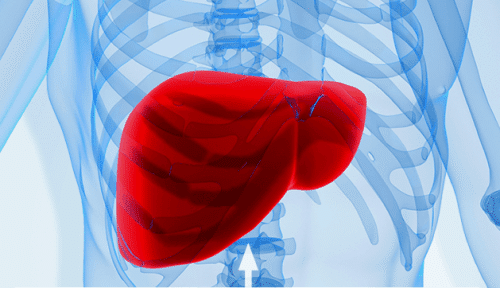
Fatty liver (which is not due to alcohol consumption) is the most common liver disease in the world and is the leading cause of chronic liver disease. Fatty liver is found in 30% of the general population and even increases to 80% among people with diabetes or obesity. According to the researchers, being overweight, and especially abdominal obesity and an unhealthy diet that includes eating a lot of sugar, sweet drinks, saturated fat and a sedentary/inactive lifestyle, increase the risk of getting fatty liver disease. Since fatty liver is a risk factor for diabetes and cardiovascular diseases, diseases associated with brain damage and cognitive decline, the researchers wanted to check whether there is also a direct relationship between fatty liver and brain indices related to cognitive decline.
In the current study published in the journal "JAMA Neurology", led by Dr. Weinstein and Dr. Zalber-Sagi from the School of Public Health at the university and other researchers from Boston University, California, Howard University, and MIT, the researchers sought to test the relationship between fatty liver and aging The brain is examined using an MRI scan. This is the first time that a study has been conducted that examines this relationship using MRI, which can be used to identify anatomical indices in the structure of the brain - the volume of the brain, the volume of the hippocampus and damage to the "white matter". These indicators can indicate that the brain is "older" and are related to degenerative diseases such as dementia, and to an increased chance of stroke. 766 participants from the American Framingham Study, which is one of the largest studies in the world known for its meticulous and advanced research methods, participated in the study.
The results of the study show that in people with a fatty liver in a CT scan compared to those with a normal liver, there is a higher chance that the brain volume (total cerebral brain volume) will be smaller. This relationship was found to be significant even after controlling for other risk factors including obesity, abdominal fat mass, diabetes, heart disease, hypertension and excess lipids in the blood, smoking, physical activity and age.
According to the volume measures the researchers found, they were able to tell how "old" or "young" the brain was compared to people who suffered from fatty liver and those who did not. It turned out that on average for the entire population, the brains of people with fatty liver looked four years older compared to the control group. Among people under the age of 60, the gap is even greater - the brains of people with fatty liver under the age of 60 look older by more than seven years compared to those without fatty liver.
"Non-alcoholic fatty liver disease is a common disease that starts at a young age. A healthy lifestyle that includes maintaining a healthy weight, a balanced low-sugar diet and sports may reduce the risk not only of liver damage but also of rapid aging of the brain," the researchers concluded.
